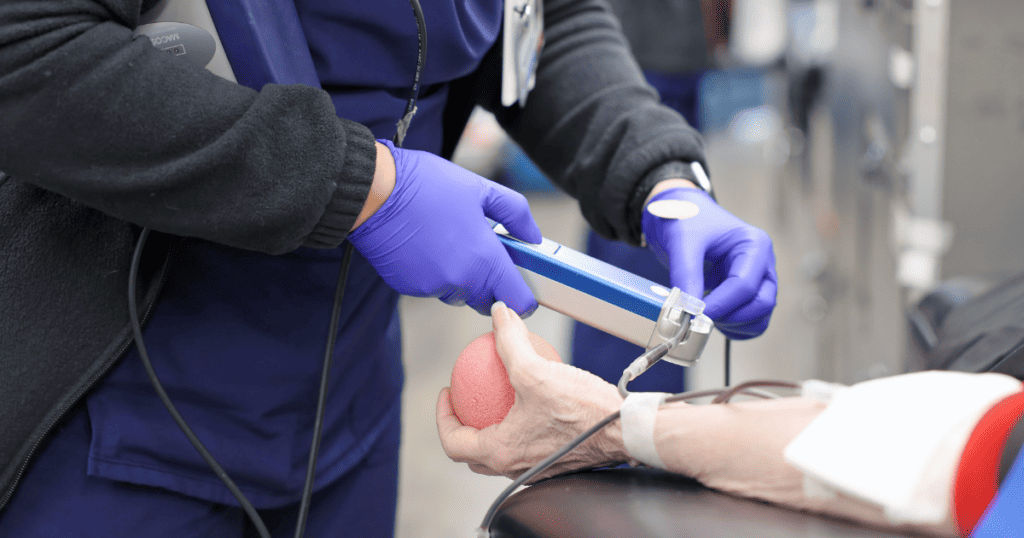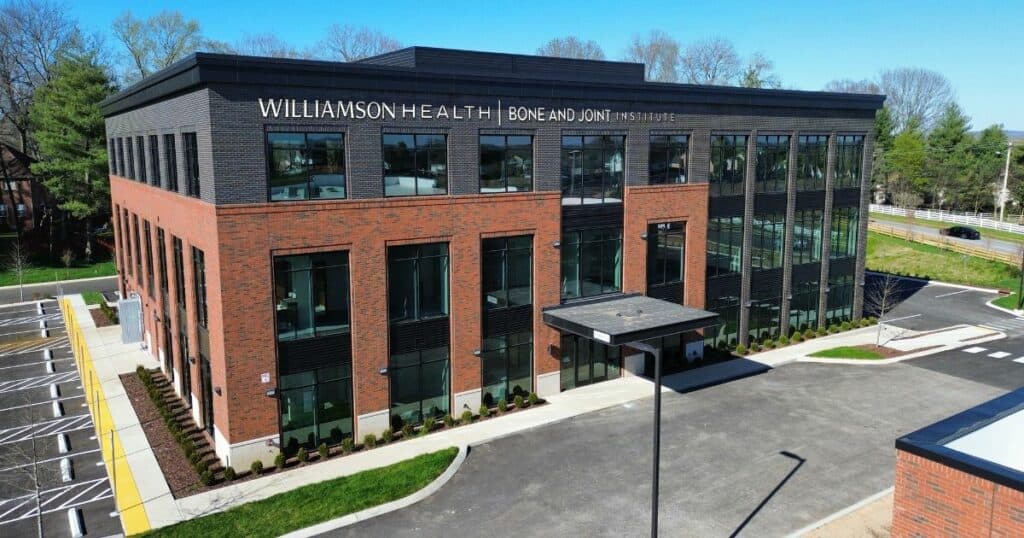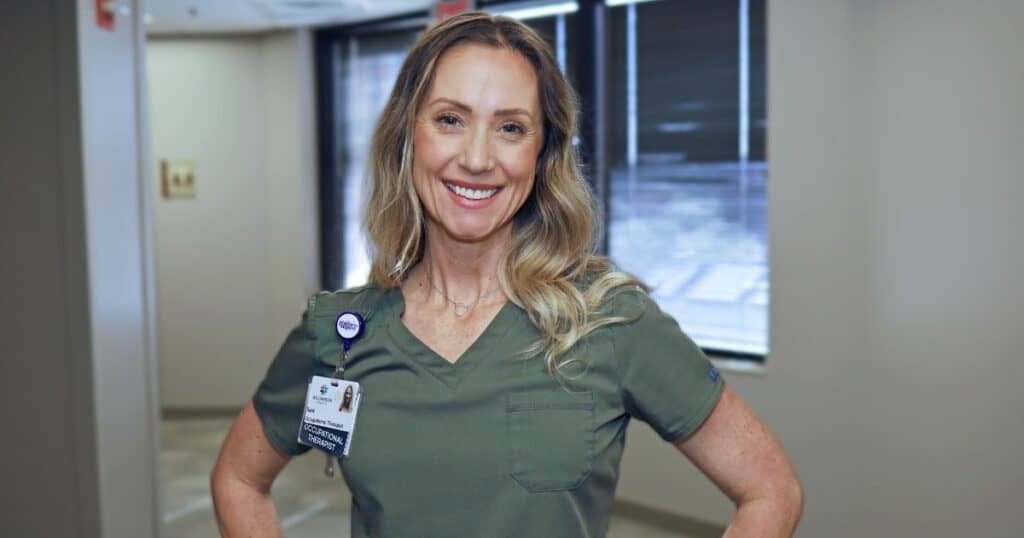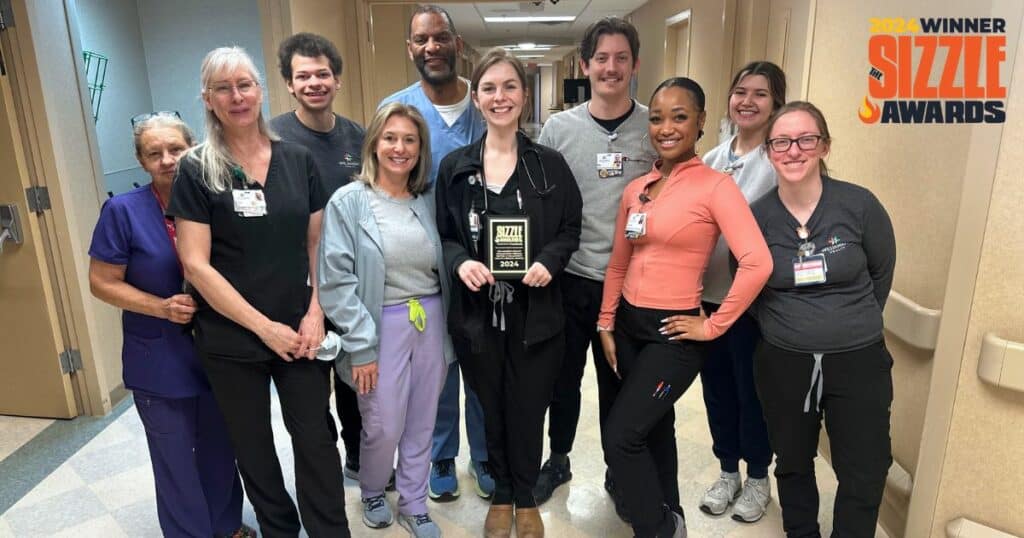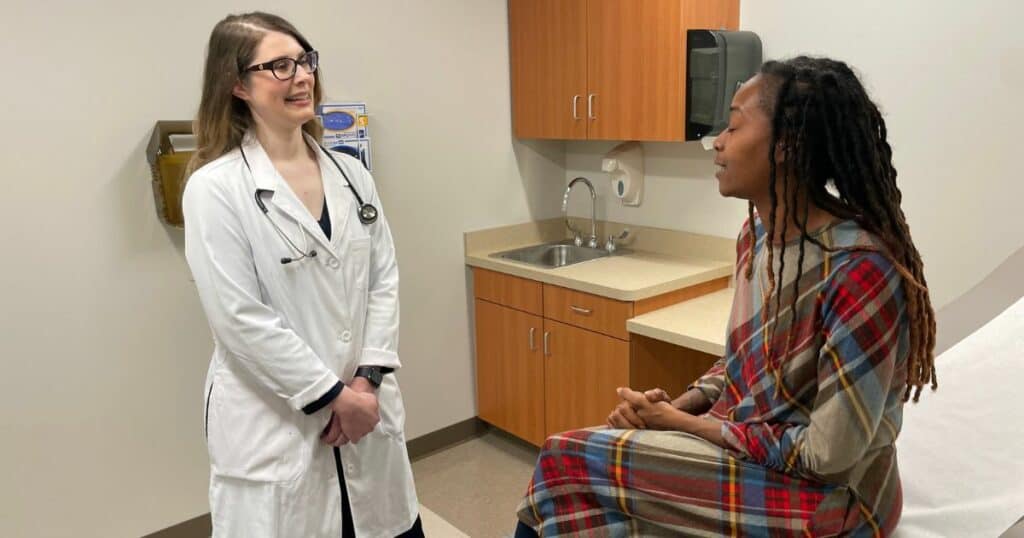Empowering Heart Health with Dr. Brian Long
Published: February 7, 2024
Originally published in Williamson County Living —
February is American Heart Month, and it’s the perfect time to take steps to improve your heart health. Heart disease remains the leading cause of death in the United States, but Williamson Health offers a wide variety of cardiovascular care options to help you take control of your heart health, from monitoring and evaluating risk to identifying blockages and placing stents.
“Our mission is to provide excellent care right here in our community,” said Brian Long, M.D., an interventional cardiologist with Vanderbilt Health and the chief of cardiology for Williamson Health. “In addition, patients who have significant heart problems and/or heart disease should have a cardiologist close to home, which provides more streamlined care and lessens the inconvenience of travel.”
Williamson Health’s broad range of heart health services includes a gold-standard chest pain center, two state-of-the-art, on-site heart catheterization labs, cardiac stress testing, cardiac and pulmonary rehab programs and more. As part of the historic renovation and expansion project at Williamson Medical Center (WMC), the hospital is also adding a new electrophysiology (EP) lab later this year, allowing the cardiac team to treat heart patients with rhythm problems better.
If you’re looking to improve your heart health, Dr. Long offered a few tips:
- Visit your primary care physician regularly. “Preventative cardiology is primarily in the hands of primary care doctors who monitor and screen for all the things we can improve upon to lower the risk of developing heart disease,” Dr. Long said. These factors include high blood pressure, high cholesterol, weight and diabetes.
- Consider getting a coronary calcium score screening. “A coronary calcium screening is a simple, quick test we use to see if a patient has any signs of heart disease,” Dr. Long said. The scan helps determine if a patient has atherosclerosis, the build-up of plaque in their arteries, which can lead to heart problems. “It’s a great test for someone who wants to know where they stand or if they might be developing heart disease,” Dr. Long said.
- Deal with the treatable causes of heart disease. “A healthy lifestyle is very important, so two things you can focus on every day are diet and exercise,” Dr. Long said. Eat a heart-healthy diet rich in vegetables, lean meats and whole grains, and strive for at least twenty-five to thirty minutes of aerobic exercise four or more days a week, Dr. Long advised.
- Know your family history. Patients who have parents or siblings who’ve developed heart disease in middle age or beyond may be at a higher risk of developing heart disease. If you have a family history of heart disease, be proactive about heart screenings. “We can’t change our genetics,” Dr. Long said, “but it’s good to be aware of these factors because they can help guide how we handle treatable risk factors.”
To learn more about the wide variety of cardiac services Williamson Health offers, click here.
Love Your Heart. Know Your Risk.
In February, Williamson Health is offering fifty-dollar self-pay coronary calcium score screenings that identify your risk of heart disease. What you need to know:
- It’s a simple, non-invasive test for asymptomatic people ages forty to seventy-five that checks for calcium buildup in patients’ hearts.
- Appointments are limited, and credit/debit card payment is required when scheduling.
- Screenings are performed at the Williamson Health Imaging Center, 3000 Edward Curd Lane, in the Bone and Joint Institute of Tennessee building.
- A physician referral is not required, but the primary care physician’s contact information is requested for follow-up.
- Results are mailed to the patient and primary care physician within 48 hours.
To schedule your screening or gift one, call (615) 435-5361.
Empowering Heart Health with Dr. Brian Long
Originally published in Williamson County Living —
February is American Heart Month, and it’s the perfect time to take steps to improve your heart health. Heart disease remains the leading cause of death in the United States, but Williamson Health offers a wide variety of cardiovascular care options to help you take control of your heart health, from monitoring and evaluating risk to identifying blockages and placing stents.
“Our mission is to provide excellent care right here in our community,” said Brian Long, M.D., an interventional cardiologist with Vanderbilt Health and the chief of cardiology for Williamson Health. “In addition, patients who have significant heart problems and/or heart disease should have a cardiologist close to home, which provides more streamlined care and lessens the inconvenience of travel.”
Williamson Health’s broad range of heart health services includes a gold-standard chest pain center, two state-of-the-art, on-site heart catheterization labs, cardiac stress testing, cardiac and pulmonary rehab programs and more. As part of the historic renovation and expansion project at Williamson Medical Center (WMC), the hospital is also adding a new electrophysiology (EP) lab later this year, allowing the cardiac team to treat heart patients with rhythm problems better.
If you’re looking to improve your heart health, Dr. Long offered a few tips:
- Visit your primary care physician regularly. “Preventative cardiology is primarily in the hands of primary care doctors who monitor and screen for all the things we can improve upon to lower the risk of developing heart disease,” Dr. Long said. These factors include high blood pressure, high cholesterol, weight and diabetes.
- Consider getting a coronary calcium score screening. “A coronary calcium screening is a simple, quick test we use to see if a patient has any signs of heart disease,” Dr. Long said. The scan helps determine if a patient has atherosclerosis, the build-up of plaque in their arteries, which can lead to heart problems. “It’s a great test for someone who wants to know where they stand or if they might be developing heart disease,” Dr. Long said.
- Deal with the treatable causes of heart disease. “A healthy lifestyle is very important, so two things you can focus on every day are diet and exercise,” Dr. Long said. Eat a heart-healthy diet rich in vegetables, lean meats and whole grains, and strive for at least twenty-five to thirty minutes of aerobic exercise four or more days a week, Dr. Long advised.
- Know your family history. Patients who have parents or siblings who’ve developed heart disease in middle age or beyond may be at a higher risk of developing heart disease. If you have a family history of heart disease, be proactive about heart screenings. “We can’t change our genetics,” Dr. Long said, “but it’s good to be aware of these factors because they can help guide how we handle treatable risk factors.”
To learn more about the wide variety of cardiac services Williamson Health offers, click here.
Love Your Heart. Know Your Risk.
In February, Williamson Health is offering fifty-dollar self-pay coronary calcium score screenings that identify your risk of heart disease. What you need to know:
- It’s a simple, non-invasive test for asymptomatic people ages forty to seventy-five that checks for calcium buildup in patients’ hearts.
- Appointments are limited, and credit/debit card payment is required when scheduling.
- Screenings are performed at the Williamson Health Imaging Center, 3000 Edward Curd Lane, in the Bone and Joint Institute of Tennessee building.
- A physician referral is not required, but the primary care physician’s contact information is requested for follow-up.
- Results are mailed to the patient and primary care physician within 48 hours.
To schedule your screening or gift one, call (615) 435-5361.
Published: February 7, 2024




